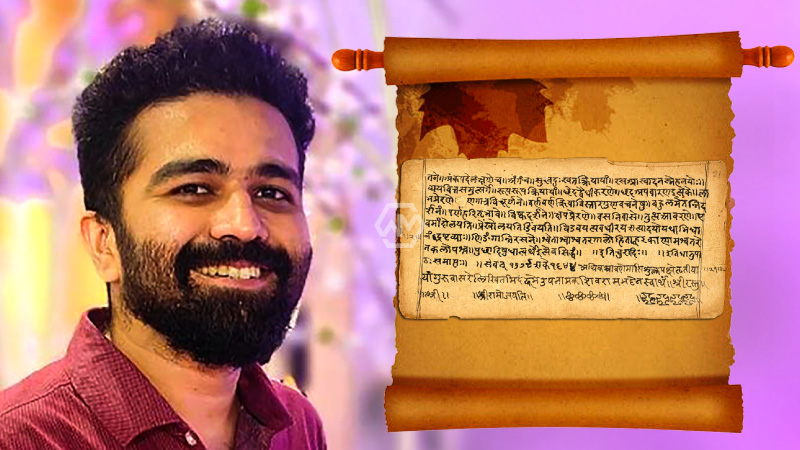A Sanskrit grammar problem that has puzzled scholars since the 5th century BC has been solved by a Cambridge University student.
Rishi Rajpopat, 27, presented the edicts of Panini, the master of the ancient Sanskrit language who lived about 2,500 years ago. About 25,000 people speak Sanskrit primarily in India, according to the university.
Mr. Rajpopat said he had a ‘eureka moment in Cambridge’ after spending nine months ‘going nowhere’.
A Sanskrit grammar problem that has puzzled scholars since the 5th century BC has been solved by a Cambridge University student.
“I closed the books for a month and enjoyed the summer – swimming, cycling, cooking, praying and meditating,” he said. “Then, reluctantly, I went back to work, and within minutes of turning the pages, these patterns started to emerge, and everything started to make sense.”
He said he would “spend many hours in the library, including midnight”, but would still work for another two and a half years on the problem.
Panini Sanskrit grammar Astadhyayi
Panini’s grammar, known as Astadhyayi, is based on a system that works like an algorithm to convert word bases and suffixes into correct words and phrases. However, two or more of Panini’s rules are often used at the same time, causing conflict.
Panini taught “metarule”, which scholars traditionally interpret to mean “if there is a conflict between two rules of equal force, the rule that comes later in the order of grammar prevails”. However, this often leads to grammatically incorrect results.
Mr. Rajpopat rejects the traditional interpretation of metarule. Instead, he argued that Panini means that between the laws that are on the left and right side of the word, Panini wants us to choose the law that applies to the right side.
Using this definition, he found that Panini’s “language machine” produced correct words in a language without any material.
- Fossils stimulate knowledge about the origin of birds
- The university will bring back the gold medals of Benin and Nigeria
- Cambridge university purchases 19th-century ‘traveling library’
“I hope this research will instill confidence, pride and hope in Indian students that they too can achieve great things,” said Mr. Rajpopat of India.
His supervisor at Cambridge, Professor of Sanskrit Vincenzo Vergiani, said: “He has found a wonderful solution to a problem that has puzzled scholars for centuries. “This discovery will revolutionize the study of Sanskrit at a time of growing interest in the language.”



